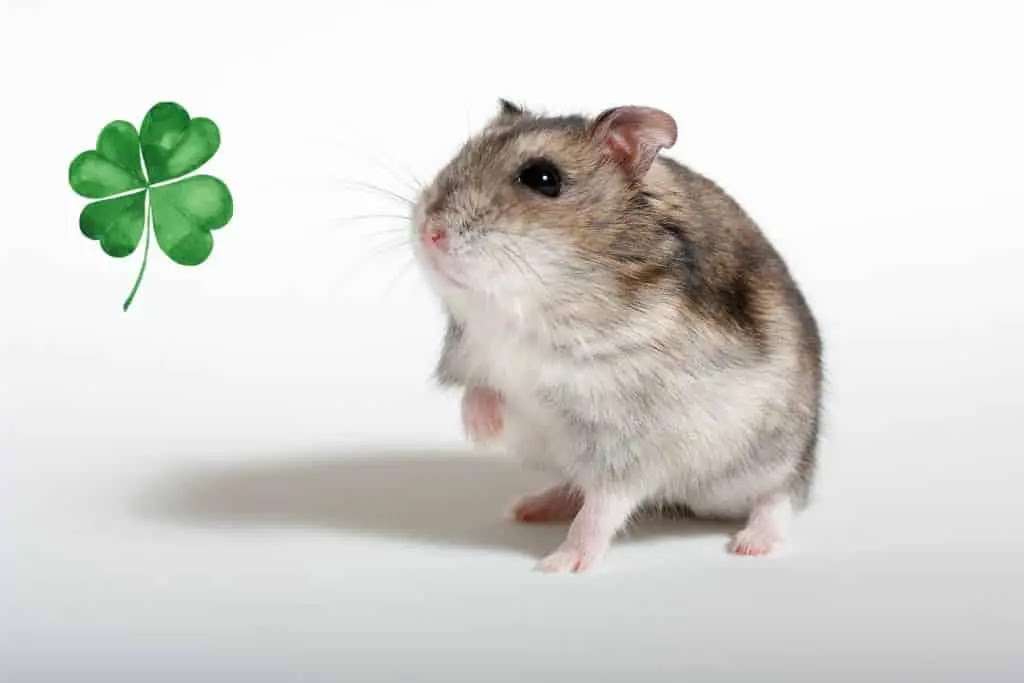Nettles for Hamsters: Unraveling the Herb Dilemma with a Vet’s Insights
Curious about incorporating nettles into your hamster's diet? Let's explore the ins and outs with a veterinary perspective. Can Hamsters Have Nettles? This article is your go-to guide for understanding whether nettles can be a safe and beneficial addition to your furry friend's nutrition.

Can Hamsters Have Nettles?
Absolutely! Hamsters can indulge in nettles in moderation, with one crucial caveat – the removal of stinging hairs is a must. Packed with essential minerals such as iron, calcium, potassium, and silica, along with a spectrum of vitamins (A, B, C, D, and K), nettles can be a healthy supplement once their stinging chemicals are neutralized. Drying or cooking them does the trick, making them a valuable addition to a well-balanced hamster diet in small amounts.
Benefits of Feeding Nettles to Hamsters
Why consider nettles for your hamster? Here are the potential benefits when offered in moderation:
- Immune Support: High vitamin C content aids the immune system.
- Blood and Circulation: Iron contributes to healthy blood and circulation.
- Disease Prevention: Antioxidants assist in preventing diseases.
- Bone and Teeth Health: A rich source of calcium for strong bones and teeth.
- Muscle and Nerve Function: Potassium supports muscle and nerve function.
- Coat Condition: Potential improvement in the overall coat condition.
- Skin, Hair, and Nails: Nutrients like silica promote skin, hair, and nail health.
Risks of Feeding Nettles to Hamsters
While nettles bring benefits, be aware of potential risks:
- Irritation: Stinging hairs may irritate the mouth, throat, and stomach.
- Oxalate Content: High oxalate content may lead to kidney and bladder stones.
- Histamines: Presence of histamines can trigger allergic reactions.
- Upset Stomach: Excessive consumption may cause stomach upset.
- Nutritional Imbalance: Unbalanced calcium to phosphorus ratios over the long term.
- Concentrated Compounds: Drying concentrates compounds like oxalates.
Symptoms of Nettle Poisoning in Hamsters
Keep an eye out for signs of nettle poisoning:
- Oral irritation, drooling, difficulty swallowing.
- Loss of appetite and lethargy.
- Digestive issues such as diarrhea or constipation.
- Blood in urine.
- Hair loss and skin irritation.
- Kidney problems.
If you suspect nettle poisoning, seek prompt vet attention for your hamster.
How Much Nettle Can You Give a Hamster?
Moderation is key. Limit nettle intake to 1-2 times per week. For dried nettle, offer 1-2 teaspoons mixed into their food. For cooked fresh nettles, provide 1-2 teaspoons of chopped leaves. Introduce nettles gradually over 2-3 weeks.
Alternatives and Supplements
Explore nutrient-rich alternatives for variety:
- Dandelion greens: vitamin K, fiber, antioxidants.
- Basil: vitamin K, antioxidants, antimicrobial effects.
- Mint: manganese, vitamin A, aids digestion.
- Dill: antioxidants, calcium, vitamin A.
- Parsley: vitamin C, calcium, freshens breath.
- Cilantro: vitamin K, removes heavy metals.
- Broccoli: vitamin C, antioxidants, fiber.
- Carrot tops: vitamin K, antioxidants, fiber.
- Beet greens: iron, calcium, vitamin C.
Check out reputable hamster diet brands like Oxbow Essentials, Supreme Selectives, Kaytee Forti-Diet Pro Health, Vitakraft VitaNature, and Brown’s Tropical Carnival for a well-rounded diet. Your hamster's well-being is worth the careful consideration of their nutritional needs. 🐹✨



Nhận xét
Đăng nhận xét